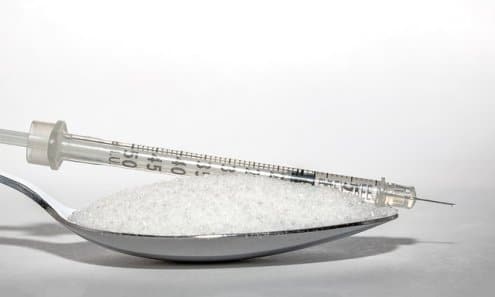Similarities and differences between glimepiride and glyburide
Similarities
Both glimepiride and glyburide are oral anti-diabetic drugs that belong to the sulfonylureas class of drugs. They act by increasing insulin release from the pancreas, reducing sugar production from the liver, and elevating the sugar uptake sensitivity of the cells throughout the body. They should be taken with breakfast or the first main meal. As with many other oral anti-diabetic drugs, it has been reported that the efficacy of both glimepiride and glyburide decreases over time in a process called secondary failure. As much as 22% of patients undergo secondary failure within the first year of starting these drugs, and this progresses to as much as 50% in the second year. Both glimepiride and glyburide are absorbed rapidly during the first hour, while peak action occurs during the 2nd to 3rd hour.
- Also read: Glyburide Vs Glipizide
- Also read: Glyburide Vs Metformin
Differences
There are some subtle differences when comparing glimepiride and glyburide. Glyburide gained FDA approval in 1984, while glimepiride gained it in 1995. Glyburide and glimepiride have been approved for type 2 diabetes mellitus, but only glyburide has been used for diabetes occurring during pregnancy. The Word Health Organization has also advocated for glyburide, not glimepiride, to be used during breastfeeding in diabetic patients since it is only present in a minute amount in breast milk. However, the organization also cautioned that the infant should be monitored for signs and symptoms of a low blood sugar level.
- Also read: Glimepiride Vs. Glipizide
- Also read: Glimepiride Vs. Metformin
Side effects of glyburide vs glimepiride
For both products, and drugs in the sulfonylureas class, hypoglycemia is one of the most common side effects. Its occurrence has been reported to be as high as 7% per year in patients taking sulfonylureas. Diabetics must be able to identify the early symptoms of hypoglycemia because late recognition can result in serious health conditions. Symptoms such as hunger, nausea, numbness over the mouth and fingers, tremors, muscle weakness, blurred vision, uncontrolled yawning, and headaches should prompt an individual to seek consumption of sweet drinks or candies immediately before proceeding to contact medical support.
Disclaimer: Please note that the contents of this community article are strictly for informational purposes and should not be considered as medical advice. This article, and other community articles, are not written or reviewed for medical validity by Canadian Insulin or its staff. All views and opinions expressed by the contributing authors are not endorsed by Canadian Insulin. Always consult a medical professional for medical advice, diagnosis, and treatment.


